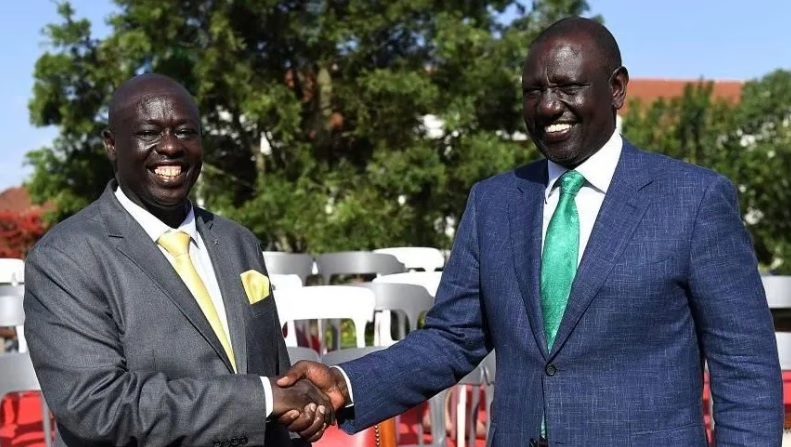Kenya’s Deputy President, Rigathi Gachagua, is facing impeachment proceedings initiated by members of parliament who accuse him of involvement in June’s violent anti-government demonstrations, corruption, undermining the government, and promoting ethnically divisive politics. Gachagua has dismissed these allegations, but the motion to impeach him has gained significant traction, with 291 MPs backing it, well above the required threshold of 117.
The impeachment process is expected to sail through both houses of parliament easily, following the main opposition’s decision to join forces with the president’s party after the recent protests. However, no date has been set for the impeachment proceedings. Multiple attempts to stop the process through the courts have failed.
The power struggle between President William Ruto and Gachagua has raised concerns about instability in the government, particularly during Kenya’s economic and financial crisis. Ruto chose Gachagua as his running mate in the 2022 election, and Gachagua’s support from the vote-rich Mount Kenya region was instrumental in Ruto’s victory.
However, the dynamics have shifted since the youth-led protests forced Ruto to backtrack on tax increases, and members of the opposition party joined the government. Gachagua now appears isolated, with only a handful of politicians backing him.
Gachagua has adopted a defiant tone, stating that he has the support of voters in his native central Kenya region. “Two-hundred legislators cannot overturn the will of the people,” he said. For the motion to pass, it requires the support of at least two-thirds of members of the National Assembly and Senate.
The rift between Ruto and Gachagua has been evident in recent months, with Gachagua absent from key events, such as seeing off the president at the airport. Interior Secretary Kithure Kindiki has taken on some of Gachagua’s responsibilities, fueling speculation that he may succeed Gachagua.

Dozens of legislators have rallied behind Kindiki, intensifying speculation about Gachagua’s future. The police’s Directorate of Criminal Investigations has recommended charges against Gachagua’s allies, accusing them of planning and financing violent protests.
Gachagua has defended the accused, calling the charges an “act of aggression” and an “evil scheme” to facilitate his impeachment. Kindiki has pledged to remain neutral but emphasized that “high-level individuals” will be prosecuted.
Many young protesters dismiss claims that Gachagua’s allies were behind the protests and view the impeachment bid as an attempt to divert attention from bad governance. They argue that if Gachagua goes, President Ruto should also resign.
An opposition legislator has filed a censure motion against Ruto in the Senate, though it carries no legal weight. Ruto will be weighing the political risks of moving against Gachagua, but lawmakers warn him not to interfere.
Gachagua’s fate now rests with legislators, but President Ruto may still influence the outcome.